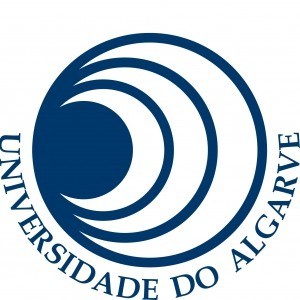Photos of university / #cudenver
The Toxicology program at the University of Colorado Denver offers a comprehensive education designed to prepare students for careers in the field of toxicology, environmental health, and public safety. This interdisciplinary program combines principles from biology, chemistry, medicine, and environmental sciences to equip students with a solid understanding of how chemicals and other agents affect human health and the environment. Students gain expertise in risk assessment, hazard identification, and the mechanisms of toxicity, enabling them to evaluate the safety of pharmaceuticals, chemicals, and environmental pollutants. The curriculum includes coursework in molecular biology, biochemistry, pharmacology, and toxicological methods, providing a strong foundation for research, regulatory, and industry roles. Students also have opportunities for hands-on training through laboratory experiments, internships, and collaborations with governmental agencies and private sector organizations. The program emphasizes critical thinking, analytical skills, and scientific communication to prepare graduates for diverse careers in toxicology, environmental health, regulatory agencies, research institutions, and healthcare settings. With access to state-of-the-art facilities and faculty who are leaders in the field, students are facilitated in engaging with current issues such as chemical safety, public health policy, and emerging toxicological challenges. Whether students aim to advance their careers in industry, pursue doctoral research, or enter public health and safety roles, the Toxicology program at CU Denver provides the knowledge, skills, and professional development needed to excel in this vital and evolving field.
The current program consists of 28 full time pre-doctoral students and 37 full time toxicology graduate faculty members. The toxicology graduate faculty have primary appointments in the School of Pharmacy, the School of Medicine, the Webb-Waring Antioxidant Research Institute, the National Jewish Medical Center or the Rocky Mountain Poison and Drug Center.
Research opportunities for trainees cover the breadth of toxicology with major strengths in cancer/carcinogenesis/chemoprevention, oxidative stress and antioxidants, neurotoxicology, pulmonary toxicology, hepatotoxicology, pharmacogenetics, pharmacogenomics, immunotoxicology, nanotoxicology and clinical toxicology.
In addition to graduate students, there are many postdoctoral fellows, highly trained technicians and undergraduate researchers within the Toxicology program. After students complete their coursework and choose a project, they become essentially full-time researchers until the dissertation is submitted to the faculty. Students normally attend and present their research results at national scientific meetings. Communication with scientists at other institutions is considered an important facet of research training.
The normal requirements for admission to the graduate program in toxicology include a bachelor of arts or science degree from an accredited institution, an academic record which satisfies the minimum admission requirements established by the CU Graduate School and results of the Graduate Record Examination (GRE). All applicants for the program should have completed a year of study in the following subjects: general chemistry, organic chemistry, calculus, biology, English and physics. In addition, courses in the following subjects are highly recommended to supplement the student's background: physiology, biochemistry, statistics, cell biology, physical chemistry, and computer science.
Under special circumstances, deficiencies in important areas may be made up within the first year after entrance into the program. Normally, admission to the program will be based on an undergraduate GPA of 3.0 or better and a GRE score of 160 (verbal), 148 (quantitative) and 4.0 (analytical writing). However, applicants' recommendations, research experience and additional individual accomplishments will also be considered in the admissions process.
The student stipend is $27,000 per year. Based on the rules of the UCD graduate school, all PhD students in good academic standing are guaranteed financial support.
Although a priority of the School of Pharmacy is to provide financial support to its graduate students, stipend, tuition and fees for graduate studies in the School of Pharmacy are the sole responsibility of the student. Payment of stipend, tuition and any fees by the School of Pharmacy or by grants, contracts or gifts to the School of Pharmacy Faculty is contingent upon satisfactory academic progress (as defined by the UCD Graduate School, Graduate Student Handbook) and completion of required core courses, seminars, research rotations and examinations. The School of Pharmacy also reserves the right to review and adjust its funding policies at any time. Stipends are awarded on a 12-month basis. All students are expected to work towards program requirements for 12 months of the year.
The University of Colorado Denver offers a comprehensive program in Toxicology designed for students interested in understanding the adverse effects of chemicals on human health and the environment. This program provides a multidisciplinary approach, integrating principles from biology, chemistry, environmental science, and public health to prepare graduates for careers in research, industry, regulatory agencies, and academia. Students enrolled in the Toxicology program gain in-depth knowledge of toxicokinetics, toxicodynamics, risk assessment, and regulatory Toxicology practices. The curriculum includes coursework in analytical chemistry, molecular biology, pharmacology, statistics, and environmental health. Students also have opportunities to participate in research projects, internships, and collaborations with industry partners and government agencies such as the Environmental Protection Agency (EPA) and the Food and Drug Administration (FDA). The program emphasizes both theoretical understanding and practical skills, equipping students with laboratory techniques, data analysis, and scientific communication. Graduates from the Toxicology program at the University of Colorado Denver are prepared to pursue careers in toxicological assessment, public health policy, environmental protection, or further graduate studies. The program aims to foster critical thinking, scientific inquiry, and ethical considerations in addressing toxicological challenges. The faculty are experts in their fields, often involved in cutting-edge research and policy development, providing mentorship and opportunities for professional growth. Facilities include modern laboratories equipped for chemical analysis, biological testing, and environmental sampling. The program also encourages interdisciplinary collaboration, recognizing the importance of integrating various scientific perspectives to solve complex toxicological problems. Overall, the Toxicology program at the University of Colorado Denver offers a rigorous and rewarding pathway for students passionate about safeguarding health and the environment through scientific innovation and rigorous assessment.










